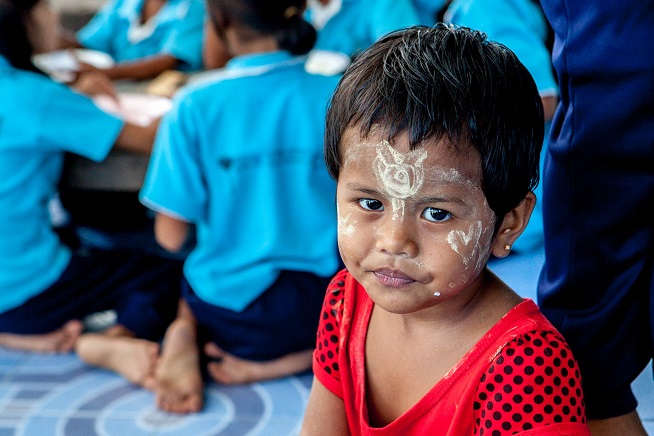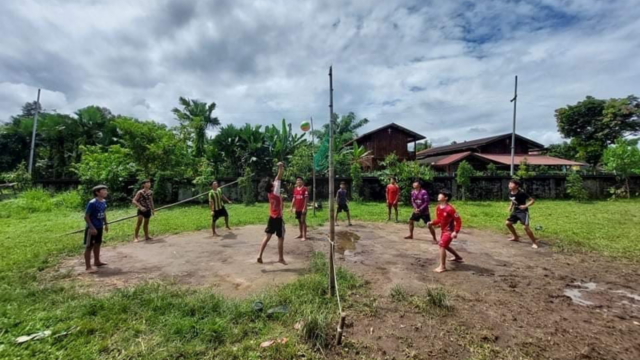Despite the War, Providing Informal Education in Myanmar
Funds raised so far: 61%
The Climate in Myanmar and its Consequences on Education
The civil war in Myanmar has resulted in 900,000 internally displaced people who have fled the conflict between the Burmese army and local militias. After months of ineffective strikes following the February 2021 coup, the population is now engaged in armed resistance. The withdrawal of foreign investment and economic sanctions led to a wave of poverty and a deterioration in development. There is no end in sight. As a result, education is on hold. The schools closed in August 2020 due to the pandemic, and then in February 2021 the teachers began to strike following the coup; 35% of the teachers resigned. The military officially reopened schools in November 2021, but only 42% of pupils returned to school for fear of the military, which oversees the schools, or as a sign of resistance to the regime. 7.5 million young people are deprived of education for the school year 2022-2023.
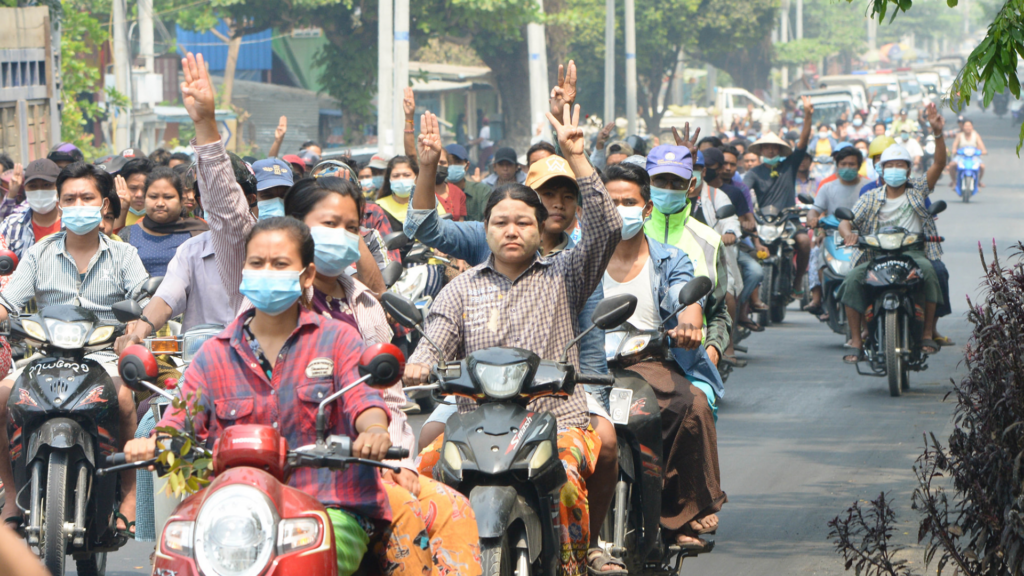
Children and Young People at Risk in Myanmar
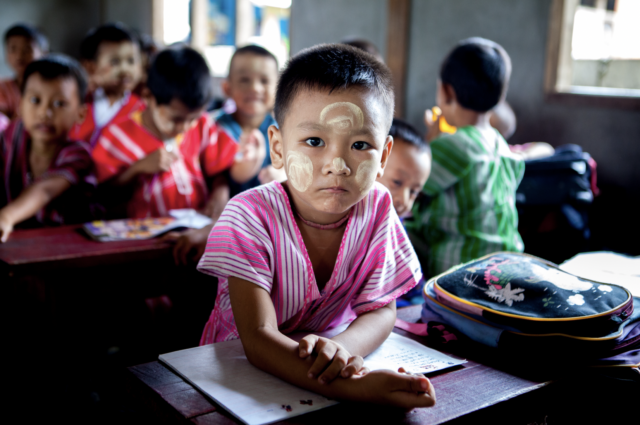
This situation has many consequences on education and the safety of the children. Dropping out of school and idleness lead to exposure to child labour, early marriage, vulnerability to drugs, etc. Also, children are exposed to various networks and trafficking (prostitution and forced labour, especially in border areas or abroad). In an economic crisis, young people have no choice but to seek work at any cost to earn a living and help their families. They are also at risk of being drafted into the Burmese army or armed civilian groups.
Trauma from the war and a bleak-looking future has resulted in a loss in appreciation for life. The high school students are a lost generation, having to stop studying and go into the work force without completing their education. It is often impossible to take online courses, as war zones are without internet, electricity and power.
Providing Access to Education Through Informal Classes
Informal classes are local initiatives led by communities in response to the lack of teaching since the coup and the boycott of public schools by teachers and parents. They have been coordinated at the national level by the education branch of the Burmese Church. They are set up in all locations where the public schools can no longer function, particularly in the war zones (Kayah, Southern Shan and Karen States; Chin State). Classes are given in camps for people displaced by the war, in parish or village halls, in homes of local people, etc… The instructors are former teachers who have resigned since the coup d’état or are retired, students in higher education, or boarding school managers. The subjects taught are academic (Burmese language, mathematics, history) and a number of schools follow the government-in-exile (NUG) courses.
In addition, children are taught recreational subjects such as singing and music, crafts and art, and sports. In this particular climate, lessons on emergency procedures and on the values of education, peace education and the environment are provided. The goal of these courses is to help young people develop resilience in the face of war.
The Objectives of Informal Classes
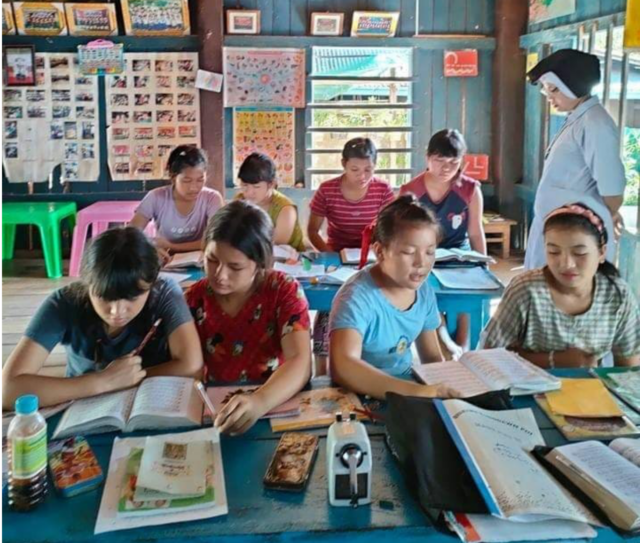
- Help children and young people continue their education amidst the political climate, so that they will be ready to return to school when the political situation normalises.
- Protect children and young people from exposure to misfortunes associated with idleness. The most exposed children and therefore the most vulnerable, are displaced children who had to flee their villages.
- Protect older children from being drafted in the Burmese army or armed resistance.
- Prepare the reintegration into the public school, according to the dissident government’s curriculum (NUG) where possible.
Who will benefit from this programme?
The targets of the informal classes are 15,000 children in primary and secondary school age. Some of them live in their village, other are displaced, but none of them are attending school. Apart from the children, the other direct beneficiaries are the 893 teachers hired for those informal classes. They are paid 100,000 Kyat (£43) monthly, which is 2 to 3 times less than a normal teacher’s salary.
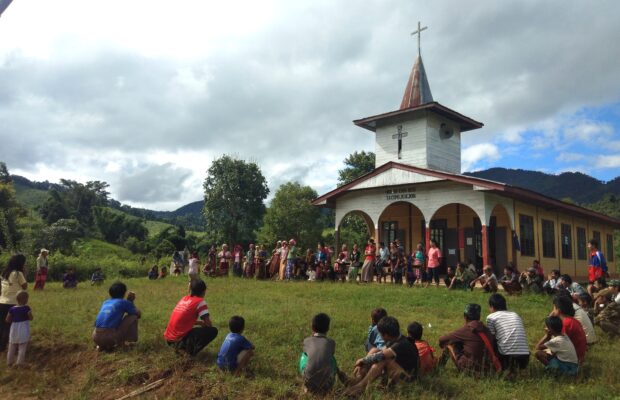
How does this programme contribute to the UN Sustainable Development Goals?

How can you help?
The operations at Children of the Mekong rely on a strong network of loyal and trustworthy local programme managers who live in the communities. Thanks to this network, we have been able to continue and extend our support despite the crises. Between March 2020 to October 2022, emergency food distribution and informal classes were provided across the country and reached 95,000 beneficiaries.
Education and security are fundamental human rights that must be ensured, especially through national crises such as the current civil war in Myanmar. You can support the informal classes programme with a donation.
15,000 children need your help to get access to informal education in Myanmar.
